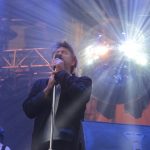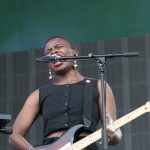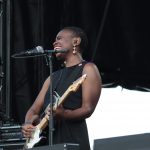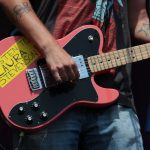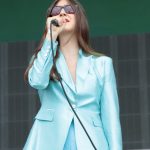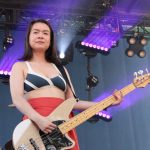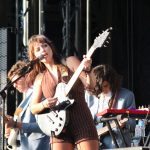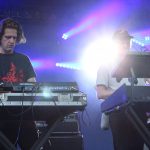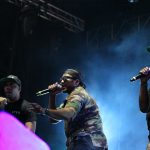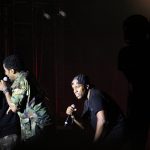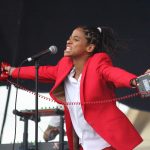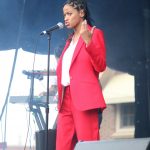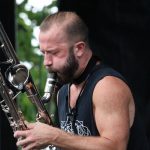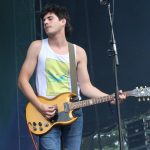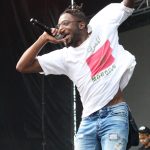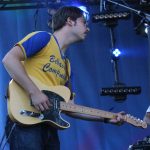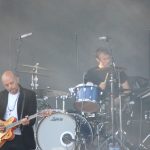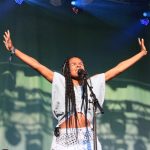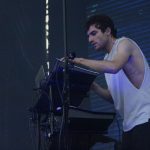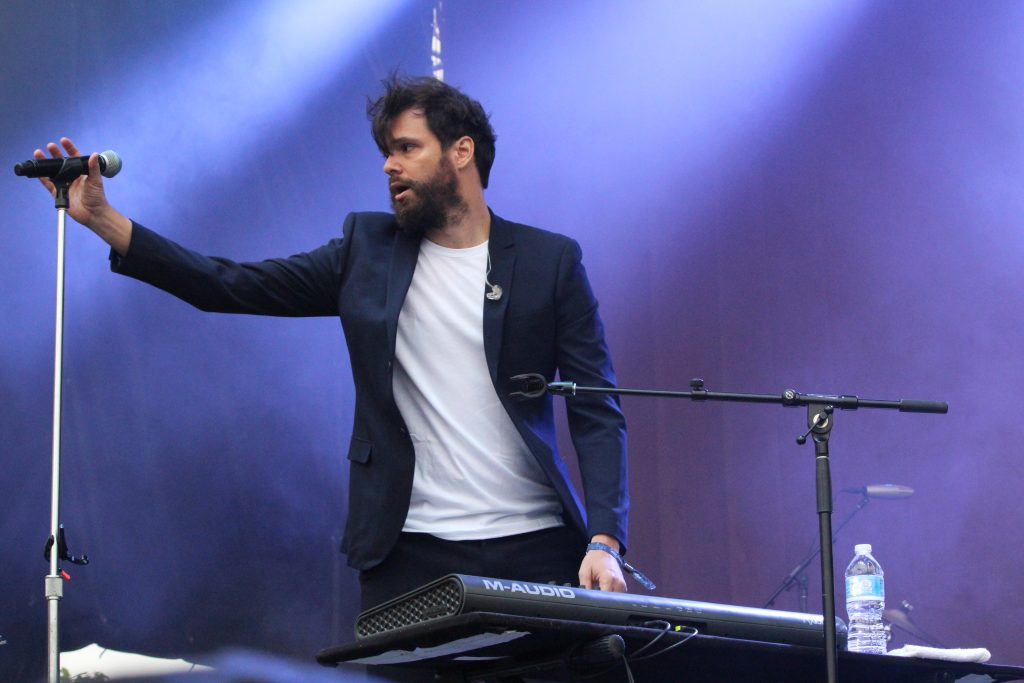
Dirty Projectors
Dirty Projectors have been considered indie darlings for over a decade thanks to the wonky electronics and the contrast between David Longstreth’s unique voice and Amber Coffman’s harmonies that add dimension to their R&B-infused modern pop. While I never had the chance to see Dirty Projectors live before Amber Coffman left the group, something seemed off about Dirty Projectors without her. Longstreth’s alternation between his low, rich vocals and his falsetto were enjoyable, but songs of Dirty Projector’s 2017 self-titled album, which focused on Coffman and Longstreth’s romantic and collaborative breakup, like “Keep Your Name” and “Little Bubble” left behind an uncomfortable aura. Dawn Richard joined Longstreth for a breezy rendition of “Cool Your Heart” to close the set, and this highlight helped me (somewhat) forget about the prolonged uneasiness created early on in the performance.
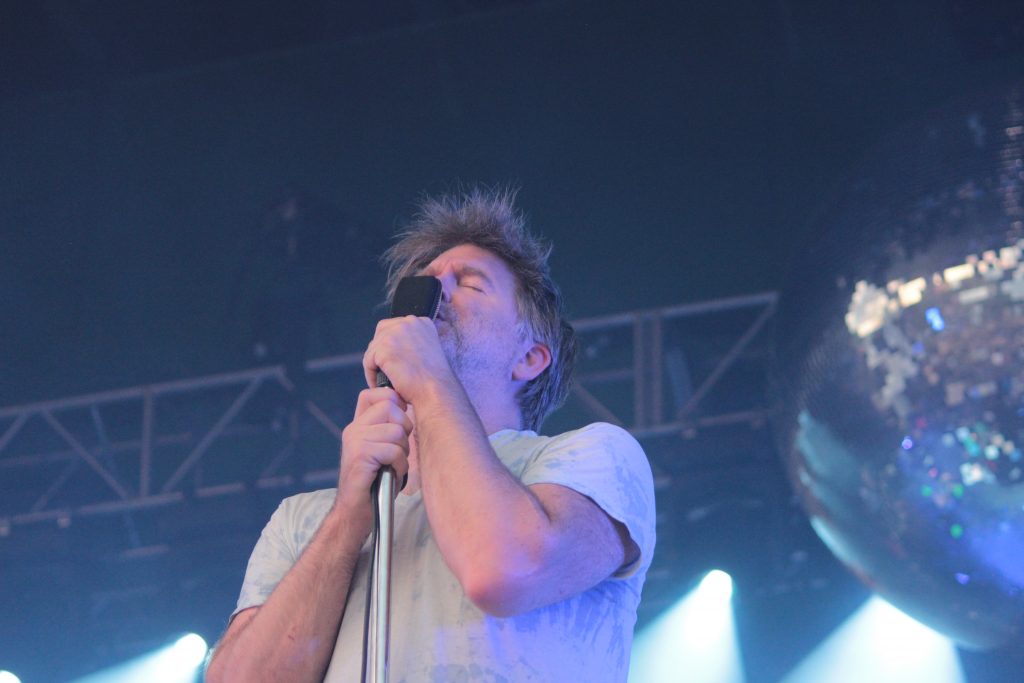
LCD Soundsystem
LCD Soundsystem closed out Friday’s festival with a bang. Since LCD Soundsystem’s reunion last year, they have played a handful of festivals and seeing them live made it clear that, despite how many festivals they’ve played recently, they’re such a great and genuine headliner because they mean so much to fans and the progression of music . I have a new favorite by LCD Soundsystem every few months because they’re a band that’s easy to grow and mature with. The crowd couldn’t help but dance for the majority of LCD’s set, from new favorites like “Call the Police,” to the hits like “All My Friends” and “Dance Yr Self Clean,” but it was clear that a lot of the excitement sourced from more than the danceable synths. LCD Soundsystem is a really special band for a lot of people, and it was beyond special to see them live.
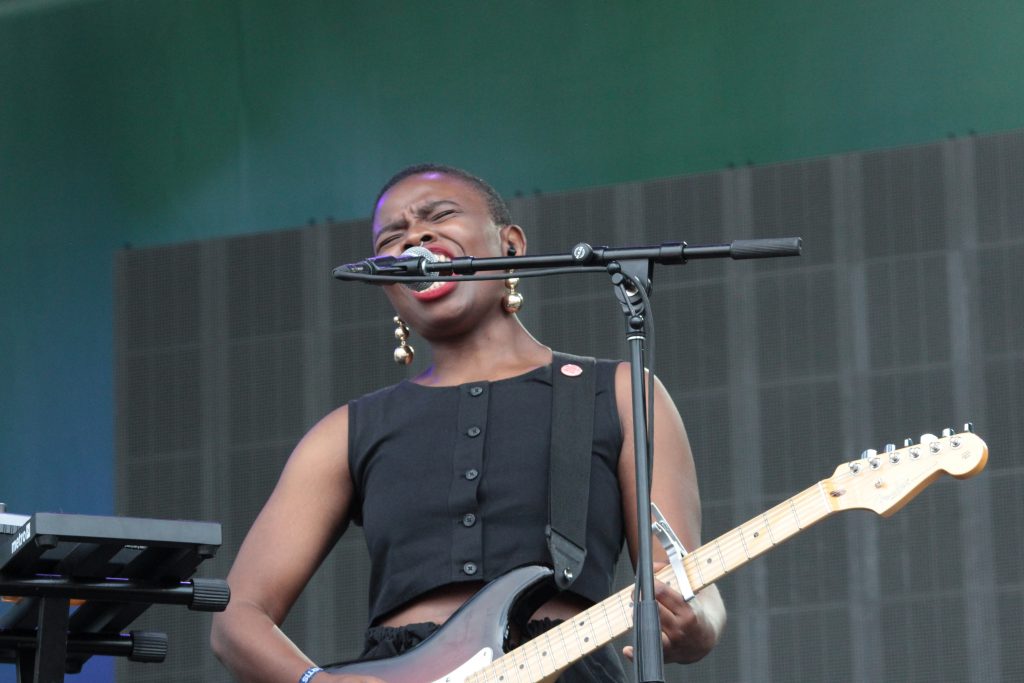
Vagabon
Early in her set, singer Lætitia Tamko of Vagabon admitted that “[She’s] a woman of few words.” This sentiment is echoed with the line “I feel so small, my feet can barely touch the floor on the bus” from her song “The Embers.” While Tamko may feel small, she by no means delivered a small performance. Her massive voice captured the audience, catalyzing swaying bodies and bobbing heads with every song. Tamko took a while to warm up to the huge crowd, but based on the performance she delivered, she better get used to performing her DIY indie rock to the masses.
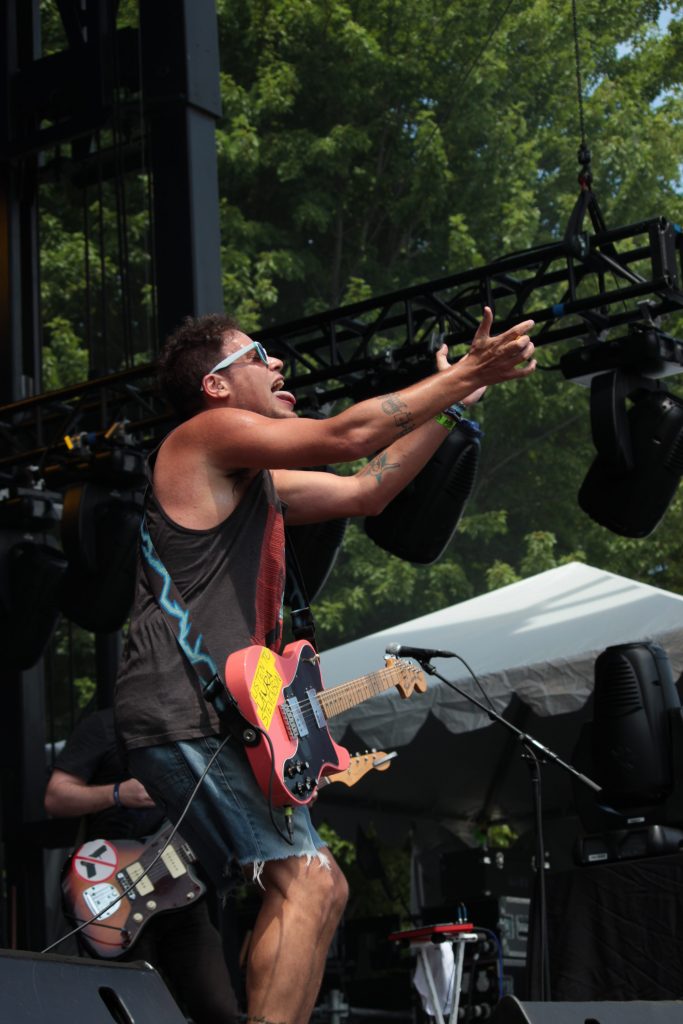
Jeff Rosenstock
Between preaching about resisting the corporate scheme, Rosenstock jokingly thanked the Pitchfork employee who booked their band for a whopping $7,500 and as a result probably lost their job. And while it’s unlikely that Rosenstock’s self-depreciating tease came true, Jeff Rosenstock was no ordinary Pitchfork performer. Jeff Rosenstock’s strong DIY ethics, candid wit, and catchy, yet pointed punk set him apart. Buried under Rosenstock’s distinctive shouted choruses, keyboard parts reminiscent of the 60s, throbbing beats, and reggae influence warp his pop-punk into something more innovative. Rosenstock has a lot more going on beyond head-bang inspiring choruses, but his performance proved that he is still a master at creating a little debauchery.
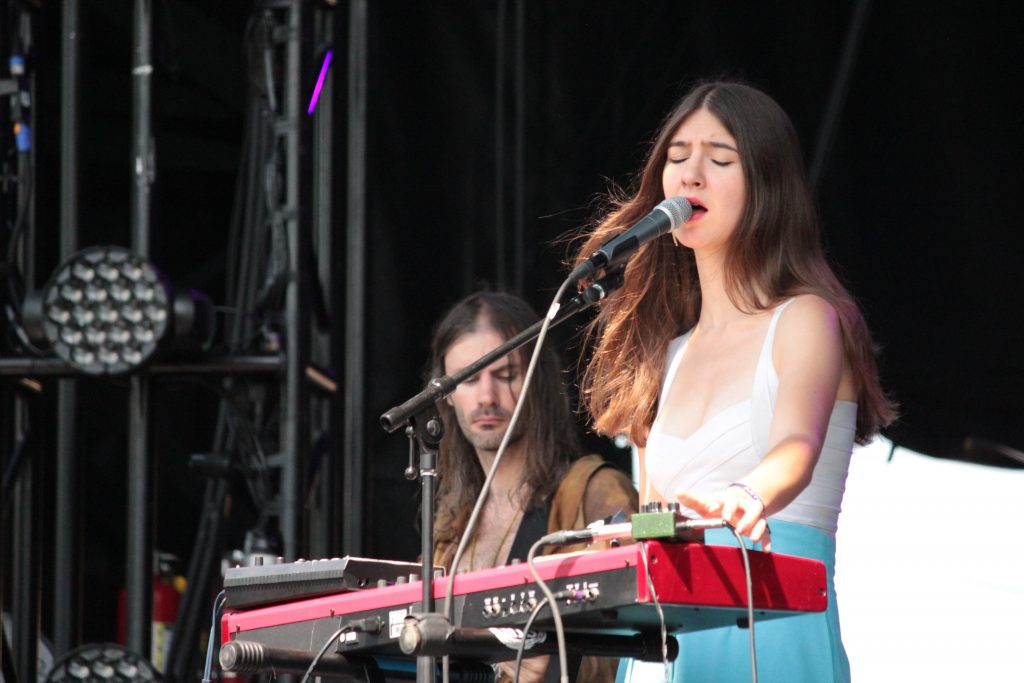
Weyes Blood
As soon as Weyes Blood emerged in her shining blue satin pantsuit, her vocals, as silky as her suit, and the rolling keyboards soothed and transported Union Park to a late 1960’s dream. With the yearning “Seven Words” and “Do You Need Someone” as performance highlights, Weyes Blood created a elegantly haunting atmosphere. Weyes Blood even came equipped with her own candelabra as a “horror object” to facilitate the ethereal journey.
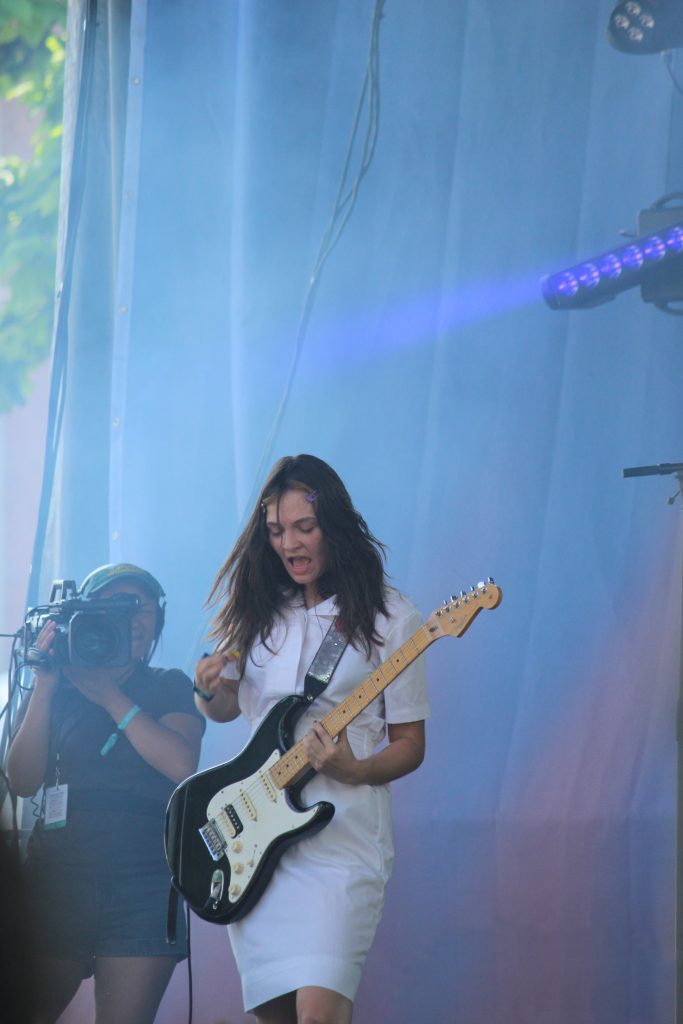
Cherry Glazerr
I rushed over from the green stage where Weyes Blood was playing to the blue stage to catch the second half of Cherry Glazerr’s set. Far from the tree-lined blue stage I could hear the alternations between Cherry Glazerr’s Clementine Creevy’s gentle coos and ferocious screams. With every scream and huge guitar part came an explosion of energy that sent the band and audience into a craze. This snippet of their performance that I witness left me beyond excited to see them in September at Athens’ Caledonia Lounge, but also left me thinking that they really could use a bigger stage.
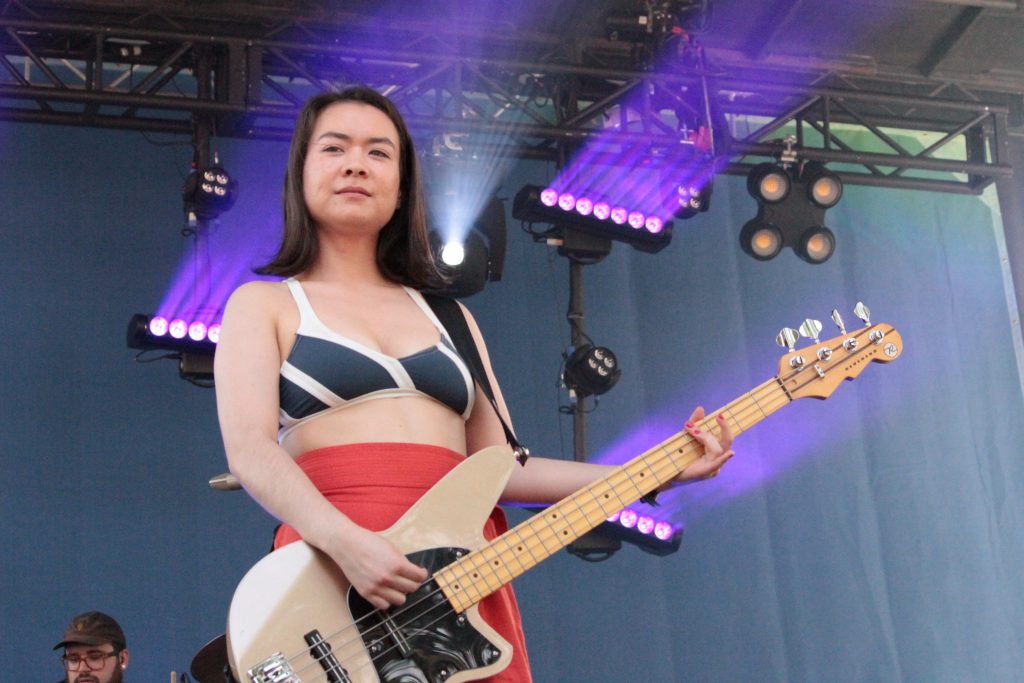
Mitski
Mitski’s tender and soft performance proved to be a stark contrast to Cherry Glazerr’s loud set. Near the start of her slot, Mitski introduced herself by saying “My name is Mitski, and I give myself to you.” While Mitski seemed often seemed timid between songs, this melted away as soon as she hit the first note on her bass of every song, and she really gave herself to the crowd. Mitski’s earnest stage presence gave another dimension to her emotion and painful 2016 release Puberty 2.
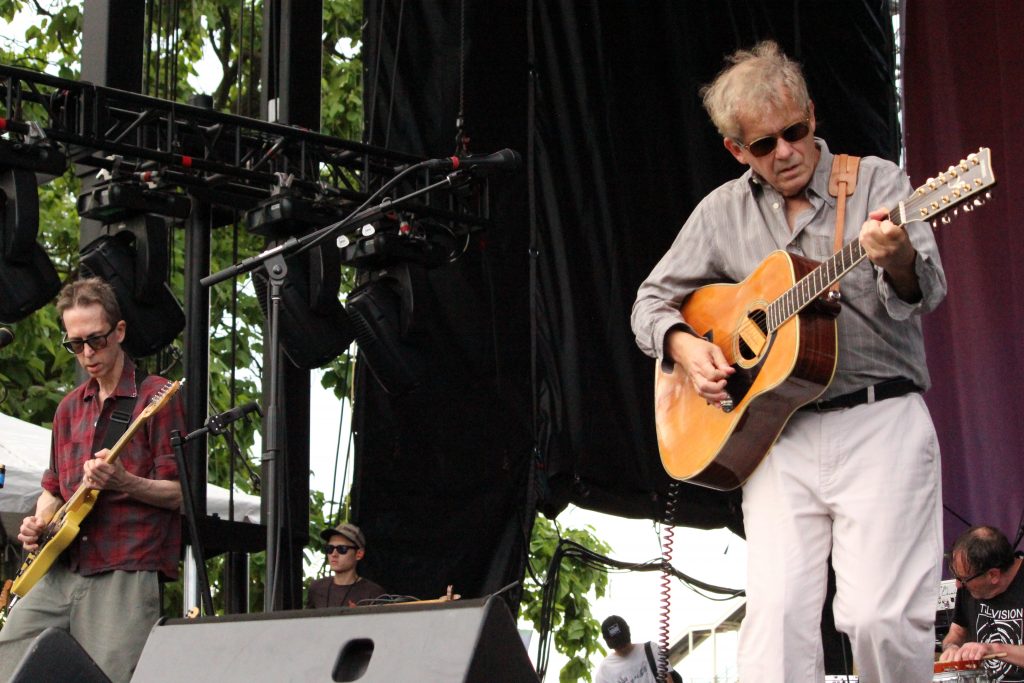
The Feelies
The Feelies delivered a compelling yet flair-free performance that a band only as well established and classic could. With Bill Million’s jangling 12-string guitar rhythms and Brenda Sauter’s pulsing basslines, The Feelies possessed a mesmerizing energy capable of charming even a person of limited exposure to the band, like myself.
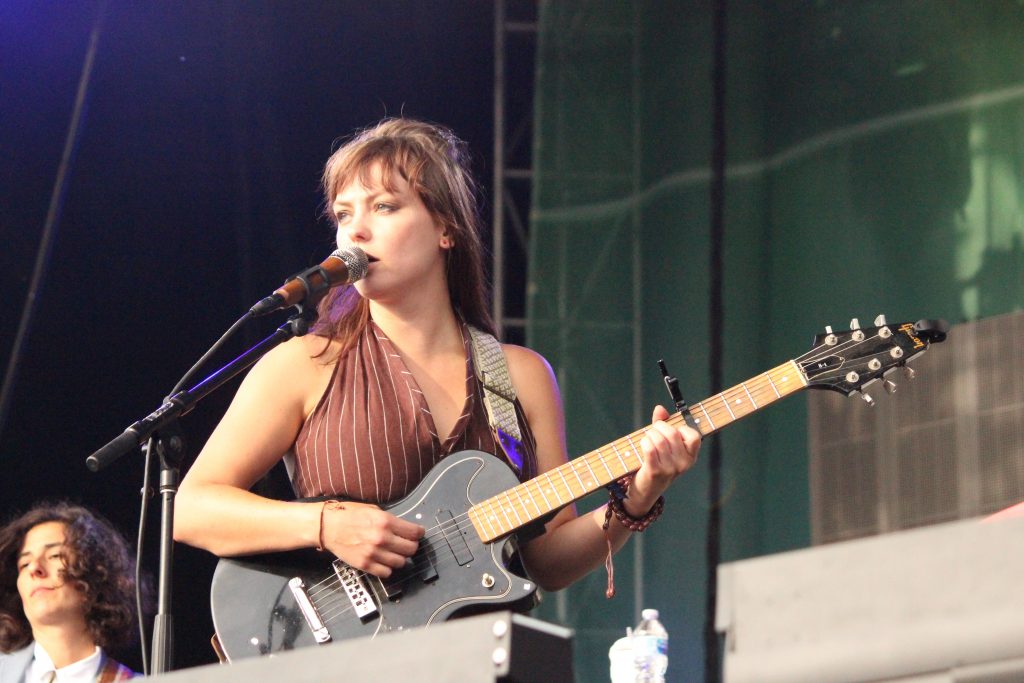
Angel Olsen
I’ve seen Angel Olsen before, but I’ve never seen her deliver a performance like she did at Pitchfork. Instead of nursing a stoic performance like I’ve seen in the past, Olsen gifted the crowd 50 minutes that were powerful, intimate, and flirtatious. Under the setting sun, Angel Olsen found the perfect combination of gentleness and force during “Sister,” and it was truly mesmerizing. As the set slowed into the calmer second half of My Woman, Olsen and her band transcended the success of her album for a beautiful and intimate.
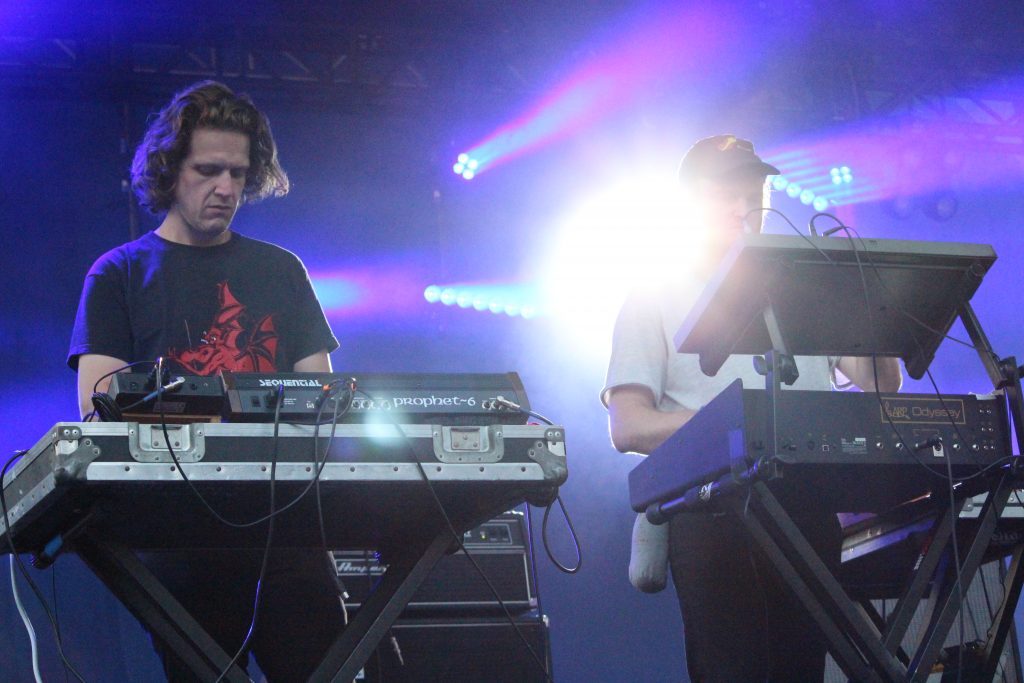
S U R V I V E
I impulsively headed over to the blue stage to catch the masterminds behind the Stranger Things music as well as some of the more innovative synth constructions of recent years. As their eerie tunes droned on, the crowd slowly swayed along. Or the whole crowd was dozing off. It was difficult to distinguish the two at the S U R V I V E set. Even one of the group’s members seemed beyond distant. While I must admit that I only stayed for five songs, I found myself a little bored even though I find S U R V I V E’s recordings spookily captivating.
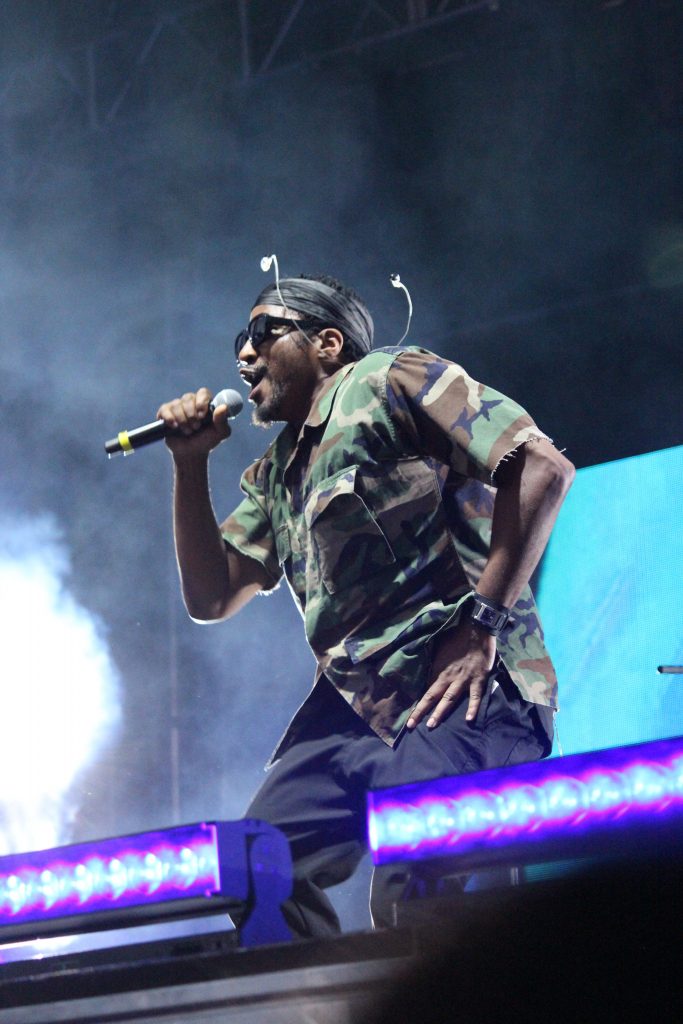
A Tribe Called Quest
Pitchfork marked A Tribe Called Quest’s first full-length performance since the passing of Phife Dawg, and I can’t imagine a better live return. A mic was set out in memory of Phife Dawg and he was celebrated throughout the set in this first performance of ATCQ’s farwell tour. The rhymes, especially those of Q-Tip’s, were tight, and ATCQ had the spirit of a group with a fresh future, not one of a group getting ready to retire. Old favorites like “Check the Rhime” and “Can I Kick It?” recalled ATCQ’s influential past while new tracks like “Dis Generation” and “We The People” proved ATCQ’s longevity and place in today’s political hip hop. Between the slick groves, sentimental remembrance of Phife Dawg, and the uplifting encore performance of “We The People,” ATCQ’s performance was thrilling chance to say goodbye to hip hop royalty.
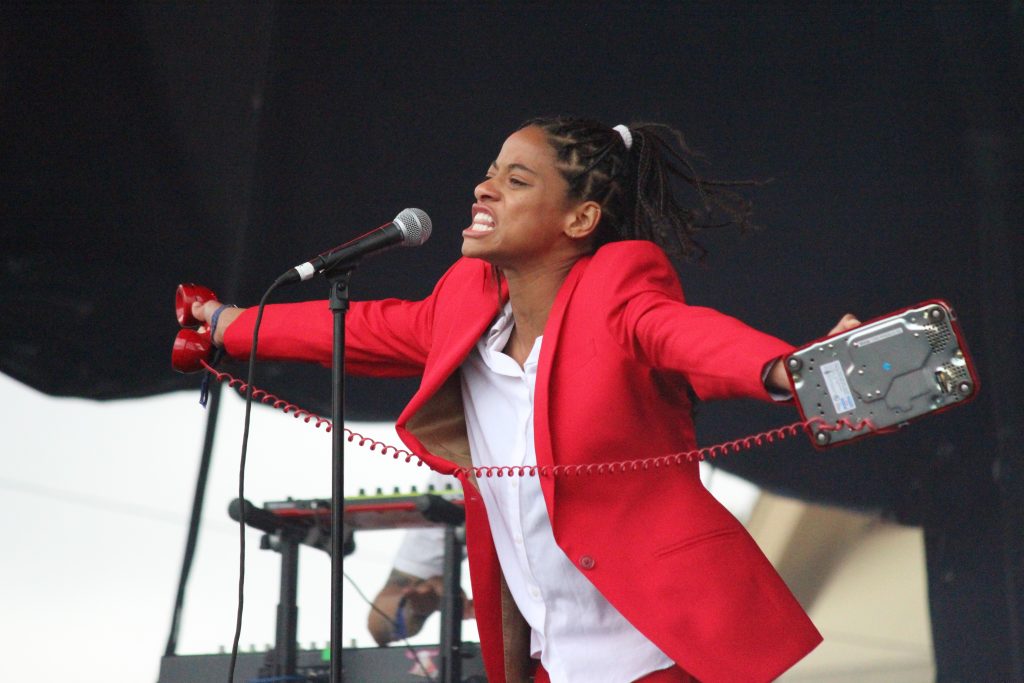
Kilo Kish
Resting on a chair with a copy of the New Yorker in hand, Kilo Kish appeared shocked when she noticed the crowd. She rose to open her set with the introductory tracks “Thank You!” and “Hello, Lakisha,” from her 2016 album, Reflections In Real Time, acquainting Union Park with her theatrical and danceable R&B. With every beat, another inch of Lakisha Robinson’s body exploded into movement as she threw herself and props across the stage. While her kinetic performance made for an engaging show, her big movements and personality, made me wish she had a live band instead of a DJ for an even more grandiose show.
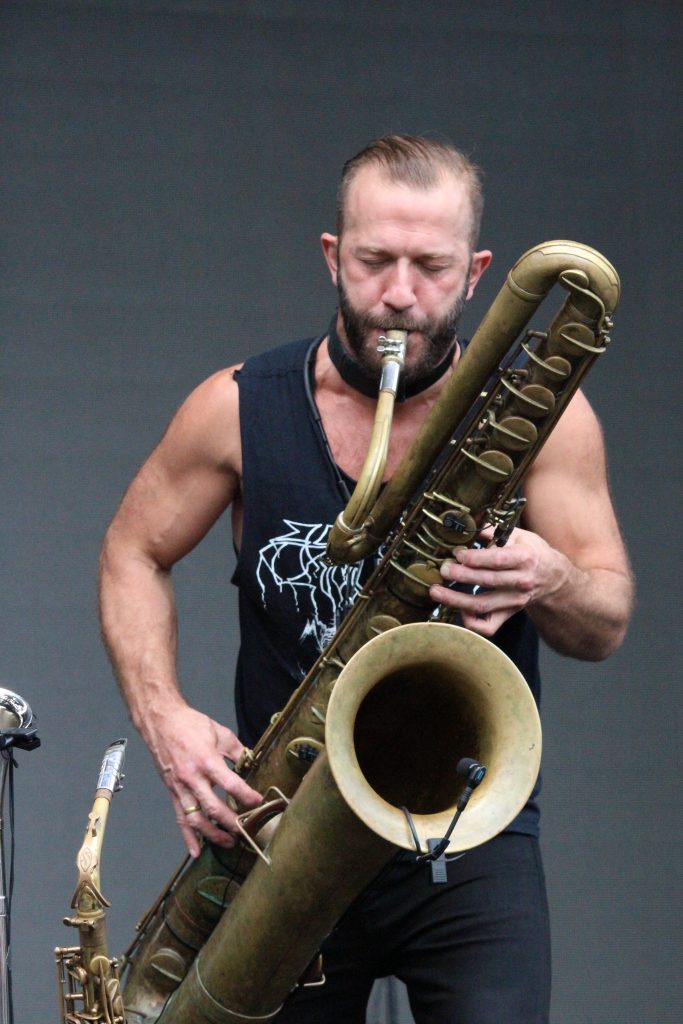
Colin Stetson
With festival goers tapping out chaotic rhythms on the barrier, from just looking at the crowd, one wouldn’t guess that jazz act was on stage. Saxophonist Colin Stetson’s avant garde jazz had the effect to transcend traditional genre notions. Most recognized for his collaborations with groups like Bon Iver, Arcade Fire, and BADBADNOTGOOD, the virtuoso solo work is rather underappreciated. It takes a live performance to truly recognize the Stetson’s immense musical and compositional talents. By using the circular breathing technique, Stetson produced more sounds than imaginable from a saxophone, mimicking beat-boxing applied to a high range of pitches. Stetson deserves a deep breathe and a huge round of applause by the time he finished.
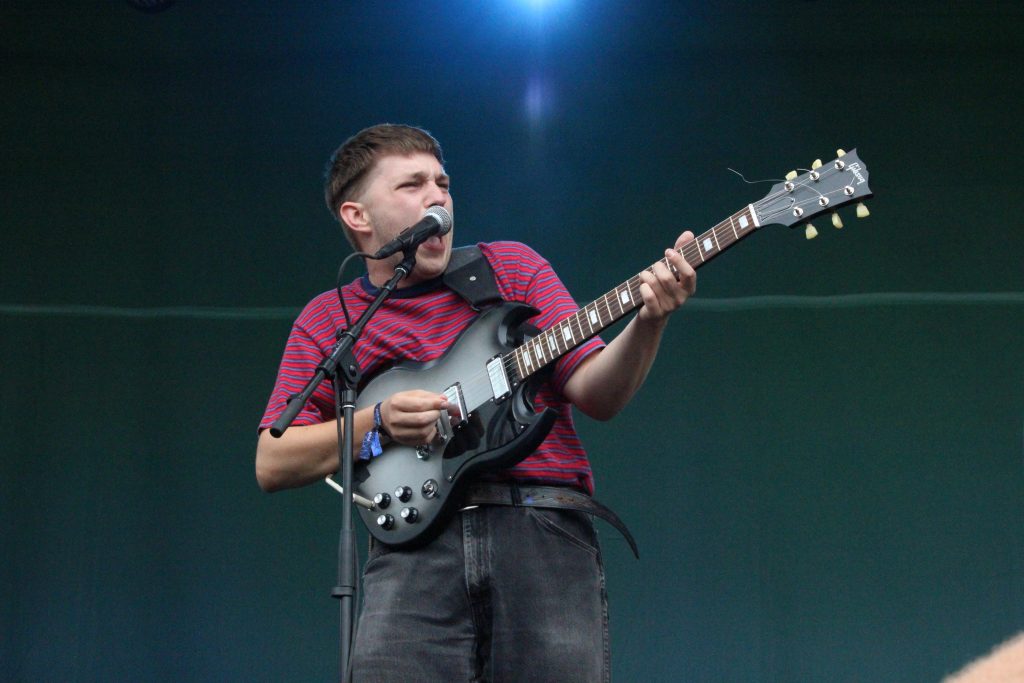
NE-HI
NE-HI performed with a distinctive Chicago charm that made them nearly impossible not to enjoy. While their garage rock is relatively simple, their sing-shouted lyrics and sharp hooks have a nostalgic comfort to them that keep you wanting to hear more. With this phenomenon partnered with lead singer Jason Balla’s bumbling dance moves, I couldn’t help but be reminded Chicago favorite Twin Peaks. I’m always excited to see Chicago’s local bands spotlighted at Pitchfork, and NE-HI’s arousing performance added the missing dimension needed on their 2017 album. As a Chicagoan, I couldn’t be prouder.
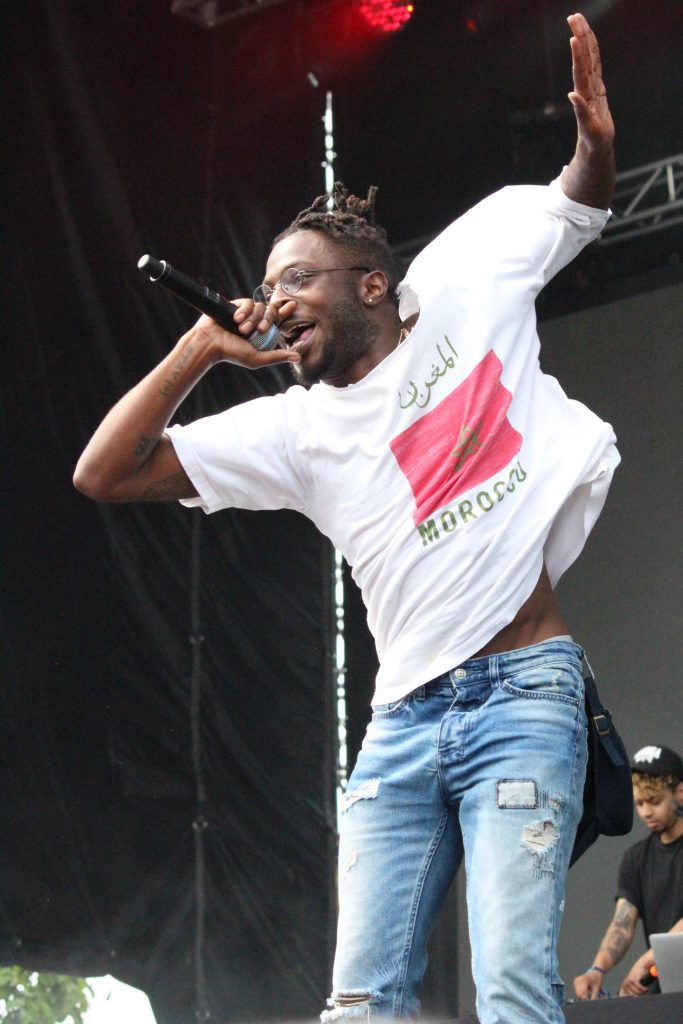
Isaiah Rashad
Isaiah Rashad gilded onto stage with a big grin and a confident attitude. As the MC jumped all around the stage, the hyped crowd stayed consistently wild. Late into his set, Isaiah Rashad stopped a song midway and admitted that he was stumbling over words and not performing up to what he expected of himself. This act of self-respect and self-discipline was positively refreshing and unexpected as most artists continue through a bad rendition of a song. Rashad proved that he knows how to have a good time while upholding a standard for the industry.
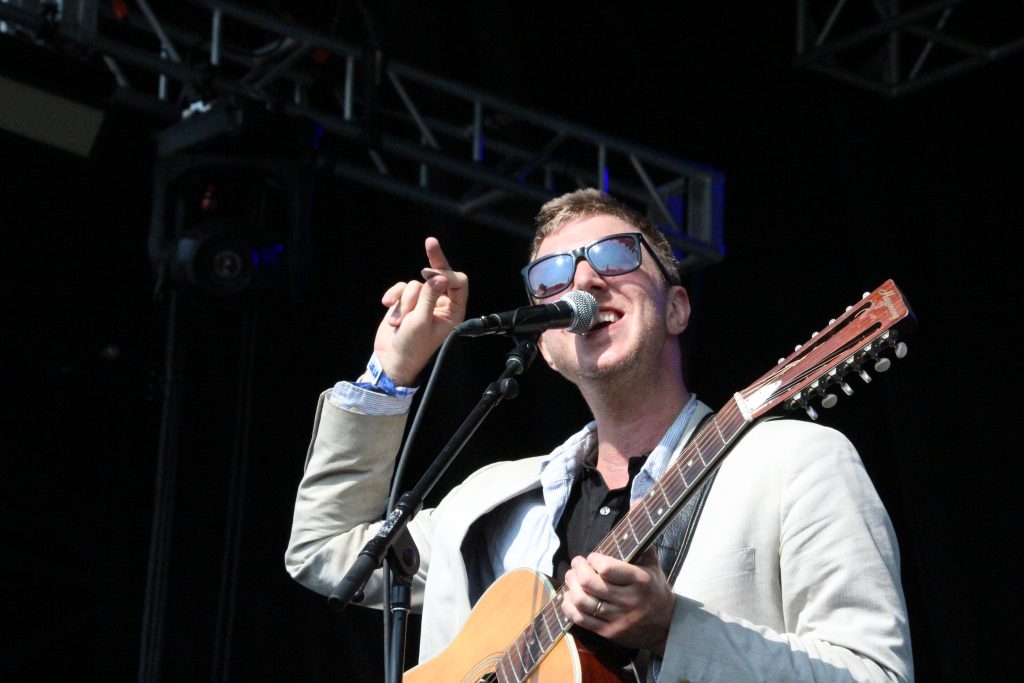
Hamilton Leithauser
I’ve never listened to the solo work of The Walkmen’s lead singer before and therefore didn’t know what to expect, but if the sun hadn’t appeared all of the sudden for his set, his sweet, warm sound would have felt out of place. With jangly guitars, retro organs, and a cheerful disposition, Leithauser’s performance seemed like a relic from a more wholesome time.
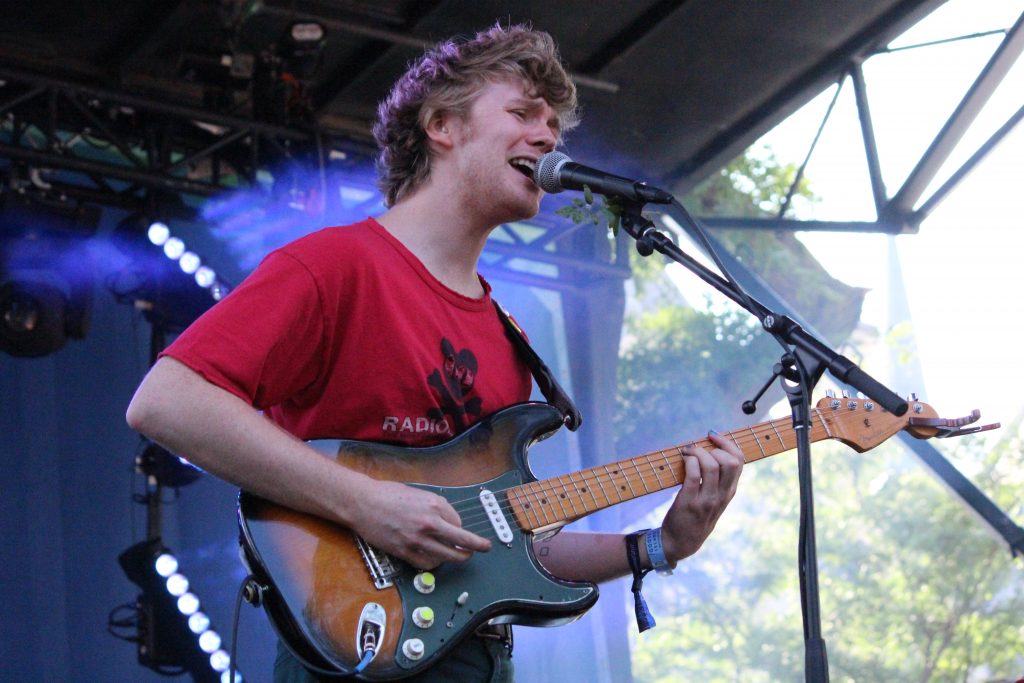
Pinegrove
Between cheeky grins, each member of Pinegrove came onstage for their soundcheck and tested their mics by blurting out a fact or catch phrase from a video game, especially from Star Wars games. When the band came back on stage for their set, it didn’t feel any different; they were just a couple of friends joking around with a field’s worth of friends. Whether Pinegrove played a song from Cardinal or from Everything So Far, nearly every member could proudly sing every word. Singer Evan Stephens Hall bounced between a whisper, croon, and a frenzied scream, but every note coming from the cozy blue stage during stayed positively warm and comforting. Cardinal is a record about friends, and I couldn’t help but think that the feeling of friendship is what makes their live show feel so fantastic.
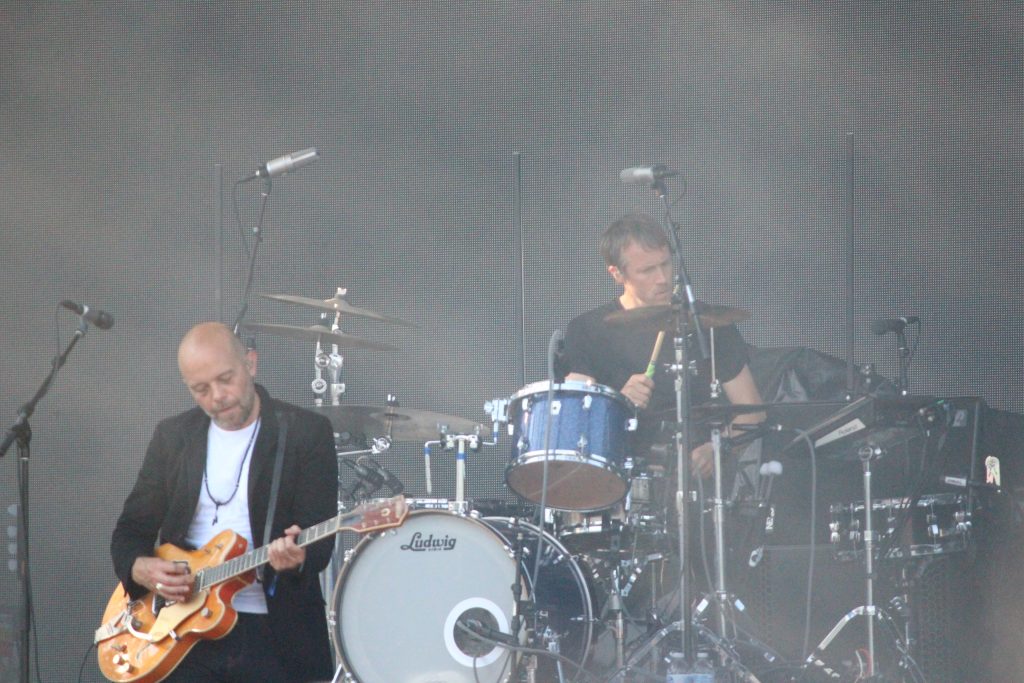
Ride
After Pinegrove, I headed over to the red stage to catch the end of Ride’s set. Much to my luck, the legendary shoegaze band saved most of songs that they played off of 1990’s Nowhere for the end of their slot. It’s been 27 years, since that release but despite the years that have passed, I don’t think “Drive Blind,” “Taste,” or “Vapour Trail” could have ever sounded better.
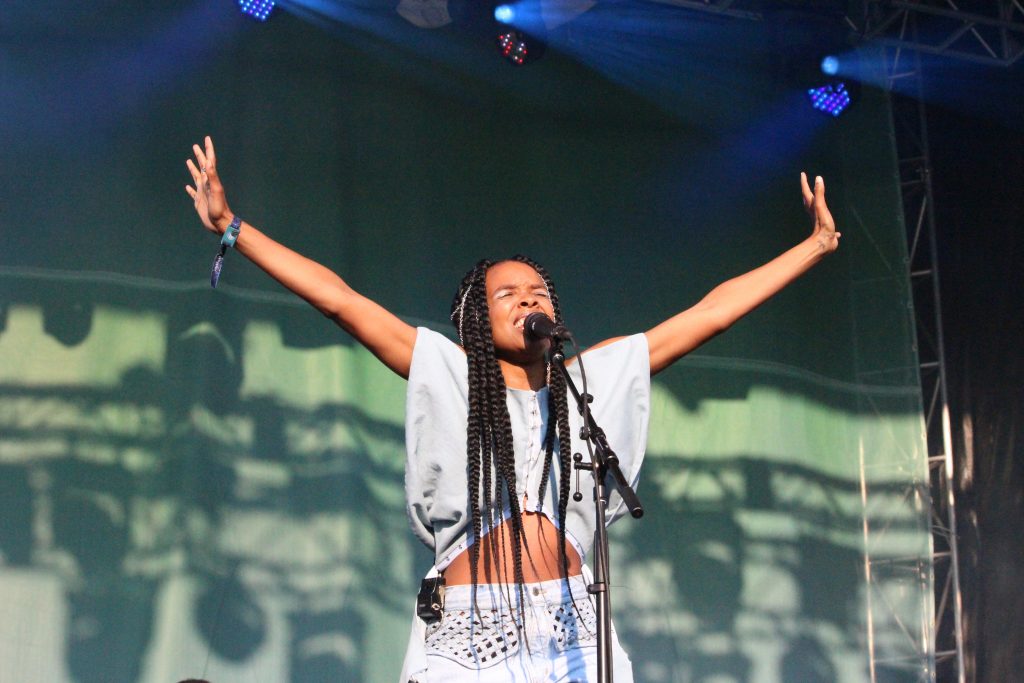
Jamila Woods
Much to my disappointment, The Avalanches had to cancel their performance due to a severe illness in a member’s family. This unfortunate event led to the relocation of Chicago’s Jamila Woods from the more secluded blue stage to the green stage where The Avalanches were set to perform. While she understandably took a moment to warm up to the crowd, her set proved to be a touching and uplifting dose of powerful poetry and sunny R&B. With songs like “Blk Girl Soldier,” Woods’ performance blossomed into fantastic showcase of Woods’ talent and a perfect complement to Solange’s upcoming set that evening.
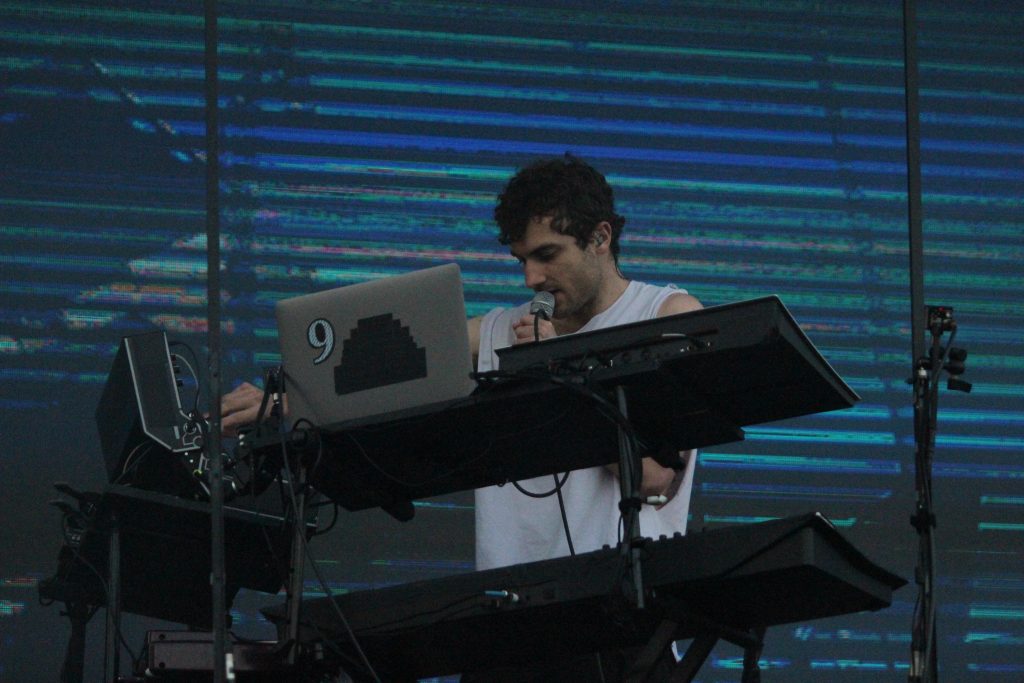
Nicolas Jaar
The combination of throbbing beats, dissonant looping saxophone solos, and Nicolas Jaar’s deep, gravelly voice made for the most ominous performance of this year’s Pitchfork. As he crouched over his laptop, Jaar introduced another dimension of an ever-unfolding soundscape with every additional layered track. Between the thick fog pumped on stage and the distorted visuals, it was hard to not give into Jaar’s mysterious world.
Solange closed out the weekend with a funk-ridden show of syrupy R&B. Under a warm orange glow, Solange and her band danced and jammed alongside everyone in attendance. While her most recent album A Seat At The Table details both the joys and sorrows of being a black woman, Solange’s performance focused on creating empathy and celebrating the ecstasy of being a black woman. Die-hard fans rejoiced at Solange’s confidence and fight for black women, while unfamiliar viewers were easily spellbound. Solange’s performance was breathtaking and chill-inspiring and I can’t imagine a better end to 2017’s Pitchfork.
-Tori Benes, Music Director
- Dirty Projectors
- Dirty Projectors
- LCD Soundsystem
- LCD Soundsystem
- LCD Soundsystem
- Vagabon
- Vagabon
- Jeff Rosenstock
- Jeff Rosenstock
- Jeff Rosenstock
- Weyes Blood
- Weyes Blood
- Cherry Glazerr
- Mitski
- Mitski
- Mitksi
- The Feelies
- The Feelies
- The Feelies
- Angel Olsen
- Angel Olsen
- Angel Olsen
- S U R V I V E
- S U R V I V E
- A Tribe Called Quest
- A Tribe Called Quest
- A Tribe Called Quest
- A Tribe Called Quest
- Kilo Kish
- Kilo Kish
- Colin Stetson
- Colin Stetson
- NE-HI
- NE-HI
- NE-HI
- Isaiah Rashad
- Isaiah Rashad
- Hamilton Leithauser
- Hamilton Leithauser
- Pinegrove
- Pinegrove
- Pinegrove
- Pinegrove
- Ride
- Jamila Woods
- Jamila Woods
- Jamila Woods
- Nicolas Jaar
- Nicolas Jaar




